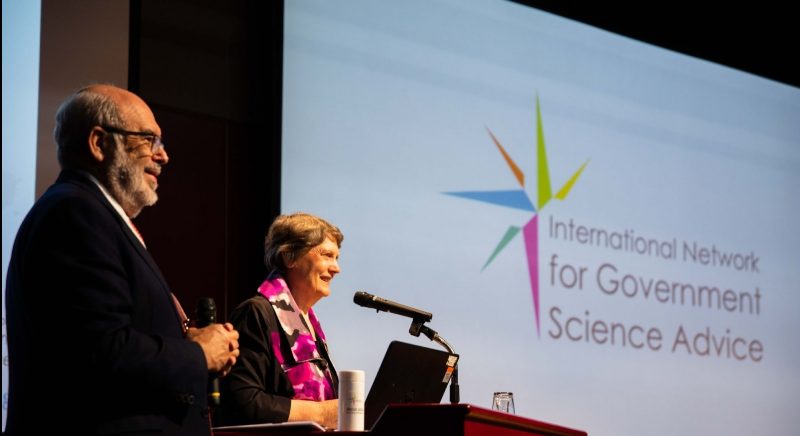The International Network for Government Science Advice (INGSA) held its biennial conference on 6-7 November 2018 in Tokyo, Japan, under the leadership of Sir Peter Gluckman, chair of INGSA and President-elect of the International Science Council.

The conference brought together policy professionals, leading practitioners, scholars and industry representatives interested in the dynamics of the science-policy interface, from over 50 countries. The conference explored the principles, practices and dynamics of working at the science-policy interface, particularly in relation to achieving the UN Sustainable Development Goals.
Daya Reddy, President of ISC, addressed the conference in the opening and closing sessions, celebrating the fast-growing development of INGSA over its four-year existence, and the importance of the work being led by INGSA under the ISC’s new vision and strategy. ISC and INGSA led a session on their joint work in mapping interactions across SDGs to create a ‘policy pull’ at the national level.
Highlights included a keynote address by former UNDP Administrator, Helen Clark, who underlined that success in achieving the SDGs will rely on political will and sound evidence to guide action in a post-truth context. She called on governments to organize themselves to address complex policy questions that span sectors, and for science to work with policy-makers to develop knowledge and tools that address the complex interlinked challenges of the SDGs while meeting national interests and aspirations.
Vladimír Šucha, Director General of the European Commission Joint Research Centre, stressed that research findings are not policy options, and policy questions are not research questions, and called on the need for co-creation, and the importance of knowledge management given the exponential growth of data and knowledge. There were many more contributions from science academies, the Global Young Academy, INGSA regional chapter members, the International Development Research Centre (IDRC), UNESCO and other partners.